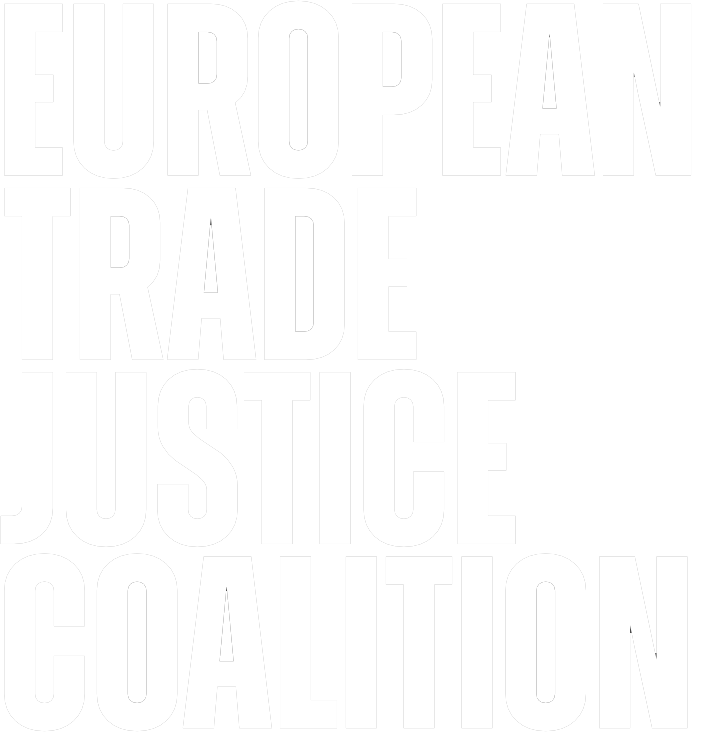
The land-grabber that seized a Tanzanian plane
EcoDevelopment vs Tanzania
A land-grabbing Swedish investor sued Tanzania when the land title for a sugar plantation that never got off the ground was cancelled by the government. The company won a payout more than three times higher than its original investment, making a profit at the expense of Tanzanian taxpayers. Even though the Tanzanian government had passed laws against ISDS, they found they were still trapped in the system. The tribunal process went ahead without their participation, and the government was ultimately held to ransom through the seizure of a state asset (a plane) by the investor.
Swedish biofuels company seeks empty land
The dispute in this case involves a land grab in Tanzania – and neither the company nor the government comes out looking good. There is a long and complicated history of land struggles in this part of Tanzania,[1] but in short the case involved an attempt to set up a sugar plantation on land people were already living on and farming.
EcoDevelopment is an offshoot of the Swedish biofuels company Sekab. The company approached the Tanzanian government seeking land, and the government offered 20 thousand hectares near Bagamoyo on the east coast of Tanzania. The land had previously been a state-run cattle ranch until the mid-1990s, and from the government’s perspective it had been disused since then.
The company commissioned an impact assessment, but then watered down the findings, toning down concerns about water scarcity and whether local people would receive a good income working for the plantation.[2] The project secured approval from the government and went ahead. Funding was to come mainly from international development organisations.[3]
However the land was not actually empty or unused. It was home to many people and already in use by small-scale farmers and cattle herders. According to the project’s own numbers the first phase of the project would have meant 300 people lost their homes, while another 1,000 lost land – although as many as 3,000 people may have actually been impacted.[4]
“The land is my home; it means everything to me. This is where we live, this is where I gave birth to my children, this is where I plant my crops and keep my animals – for all these years, it has been my family’s livelihood. It is all I have.”
Anza Ramadhani, local farmer [5]
Squatters or local farmers?
The Tanzanian government considered the people squatters, ignoring the long history of land struggles and displacement in the area.[6] The involvement of international development funders required the project to follow more stringent guidelines, and EcoDevelopment offered compensation. But there were no consultations with the local community to get their consent to the sugar plantation in the first place. People were not given the right to say no to the project.[7]
“The choice to stay or leave our land was not there: it was only to leave. We have been given no option on how the land is to be used. I have already invested in that area and now I am expected to move.”
Sefu Mkomeni, local farmer [8]
EcoDevelopment made promises of jobs, although they did not materialise. Many of the proposed jobs were as ‘outgrowers’. To secure these positions local farmers were expected to form their own companies and take out loans of at least $16,000 per person – a highly implausible scenario given that this amounted to 30 times the minimum agricultural salary in Tanzania.[9]
Protests, campaigns, legal challenges and international criticism of the plan ensued. In 2015 one of the main funders withdrew support,[10] and over time the project stalled and never got off the ground. In 2016, the Tanzanian government revoked the land title, citing the potential impacts on water sources for wildlife in the neighbouring national park.[11]
Sadly, this was not a happy ending for the local community. The Tanzanian government then handed the land – only half, but the most fertile half – to another company. In 2018 evictions were carried out by the government.[12]
Turning sour: socialising the risk and privatising the profit
EcoDevelopment sued the Tanzanian government in 2017, using the Sweden-Tanzania Bilateral Investment Treaty. As is common, the case is secretive. The only document published about it is highly redacted, with a whole section on the facts of the case blacked out, so it is hard to know the exact arguments that were made by EcoDevelopment.
However it is apparent that Tanzania argued that contract documents between the government and the company set out procedures for resolving disputes that should have been followed, rather than EcoDevelopment initiating an ISDS case. The ISDS tribunal dismissed this as “irrelevant”,[13] declaring that such agreements do not prevent a company from choosing to leapfrog the contract and instead bringing an ISDS case at any point. The tribunal also ruled out any need to consider Tanzanian land law.
Tanzania lost the case, and EcoDevelopment was awarded $165 million in compensation.[14] This is more than three times the amount EcoDevelopment say they invested – $52 million.[15] One of the reasons that corporations prefer to use ISDS is that the payouts can be much higher, and include an estimate for anticipated future profits. In this instance, this was a project that had not managed to get off the ground after a decade, and was mired in controversy, with funders pulling out. So any future profits were both highly questionable and hypothetical. Yet the tribunal awarded Eco Development over $100 million more than their original investment.
Even to have got their money back is controversial. One of the quid pro quos of entrepreneurship is supposed to be that if the endeavour has high returns, the investor deserves them because they bore the financial risk of the project failing. The sugar plantation was always a high-risk project, and EcoDevelopment knew this – not least from the initial impact assessment, which they themselves watered down. But ISDS has become a mechanism to make investments risk-free and guarantee profits – socialising the risk and privatising the profit. In this case the European investor shifted the risk onto the Tanzanian taxpayer.
Tanzania tries to resist ISDS, with little success
Why do governments not just reject the ISDS system, refuse to accept its authority and ignore it? Some do and some try to, but there are many pressures that keep countries locked into this unfair system – both external geopolitical and financial pressures, and the internal ones built into the ISDS regime. This case is a good example of the pressures within the system.
At the time that EcoDevelopment brought its case in 2017, the Tanzanian government had just taken a strong stand against ISDS. The then president, John Magafuli, was asserting the country’s right to control its own natural resources, and introduced legislation in this regard the same year. Tanzania had previously lost two ISDS cases, and the new laws included provisions against ISDS, requiring that disputes be settled under Tanzanian law or arbitration based in Tanzania. The government also cancelled Tanzania’s BIT with the Netherlands.
Tanzania tried to refuse to engage with the EcoDevelopment case, but this turned out not to be so easy in practice.[16] The case was hosted by the International Centre for the Settlement of International Disputes (ICSID), one of the main organisations that provide administrative and logistical support for ISDS tribunals. When an ISDS tribunal is formed, usually each side appoints an arbitrator and they jointly agree on a third. Tanzania did not engage with this, so EcoDevelopment asked ICSID to step in, and ICSID simply appointed an arbitrator for Tanzania and the joint arbitrator.
The tribunal then began work, and proposed dates for initial sessions. Tanzania did not engage, so the tribunal went ahead with the sessions without them. At this point Tanzania started to engage with the process.
ISDS tribunals do not run for free. The whole process is extremely expensive, and one element of the cost is that the arbitrators and the backroom administration have to be paid for. ICSID asked for an initial advance of $150,000; Tanzania did not pay.
When Tanzania started engaging with the tribunal, the government sought to put forward a counter-claim against EcoDevelopment. But the tribunal said they would only hear the counter-claim if Tanzania paid a further $200,000 advance. Without this, the tribunal would hear the arguments of EcoDevelopment’s claim, but would not make time to hear Tanzania’s side of the story.[17] And this is exactly what happened, because Tanzania was not able to pay. It is very much a pay-to-play setup.
Enforcing ISDS: EcoDevelopment seizes Tanzanian plane
This explains why countries end up engaging with ISDS processes. But why do countries pay the money awarded to the company if they lose?
Most countries around the world are party to one (or both) of two treaties governing the enforcement of international arbitration, the New York Convention and the Washington Convention.[18] These set out that countries agree to accept the decisions of international arbitration tribunals, including ISDS tribunals, and that those decisions can be enforced within their jurisdiction – by their national courts.
Enforcement usually includes seizing assets. The money awarded by an ISDS tribunal is now considered a debt that the country owes the company, and theoretically their assets could be sold in payment of the debt. However more often this is used as leverage to persuade the country to come to the table and settle.
When the ISDS tribunal in this case decided in favour of EcoDevelopment and awarded it $165million, Tanzania sought to have the finding annulled. However at the same time, EcoDevelopment went to the Dutch courts and secured permission to enforce the award. In June 2022, the next day after Tanzania applied for annulment, EcoDevelopment seized a plane from the state-owned Air Tanzania fleet that was grounded for repairs in Maastricht.[19]
Nothing has been published about what happened next. The plane was held for a year. In May 2023 the annulment procedures were discontinued. In July the plane was released.[20] Presumably Tanzania settled, paying EcoDevelopment some or all the money the tribunal had awarded.
The ISDS system is sticky: easy to sign up for, hard to extract yourself from. The current Tanzanian government remains concerned about ISDS, and has cancelled one further BIT – with Canada. But other BITs are still in force.[21] Greater awareness and pressure is needed to renew the political will to get rid of them – in Tanzania and the other countries which are partners in the treaties.
[1] Youjin B Chung, Sweet deal, bitter landscape. Cornell University Press, 2023.
[2] “SEKAB ‘substantially altered’ biofuel study, kept Orgut’s name”, Development Today, 1 April 2009. “Questions legality of SEKAB biofuel study”, Development Today, 4 September 2011.
[3] The African Development Bank (AfDB), the Swedish International Development Cooperation Agency (SIDA), the G8 New Alliance and IFAD were all involved at various stages.
[4] ActionAid, Stop EcoEnergy’s Land Grab in Bagamoyo, Tanzania, ActionAid, March 2015, p. 13. Youjin B Chung, Sweet deal, bitter landscape. Cornell University Press, 2023, p. 4.
[5] Quoted in Action Aid, Stop EcoEnergy’s Land Grab in Bagamoyo, Tanzania, March 2015.
[6] Youjin B Chung, Sweet deal, bitter landscape. Cornell University Press, 2023, chapter 2.
[7] As explained in Action Aid, Stop EcoEnergy’s Land Grab in Bagamoyo, Tanzania, March 2015, affected people did not give their free, prior and informed consent (FPIC).
[8] Quoted in Action Aid, Stop EcoEnergy’s Land Grab in Bagamoyo, Tanzania, March 2015.
[9] ActionAid, Stop EcoEnergy’s Land Grab in Bagamoyo, Tanzania, ActionAid, March 2015, p6
[10] Sina Schlimmer, “Caught in the web of bureaucracy? how ‘failed’ land deals shape the state in Tanzania” International Development Policy, 12 (1) 2020.
[11] Kizito Makoye, “Villagers spared eviction as Tanzania halts $500 million energy project to save wildlife”, Reuters 6 June 2016.
[12] Youjin B Chung, Sweet deal, bitter landscape. Cornell University Press, 2023, Conclusion.
[13] Award in the the arbitration proceeding between EcoDevelopment in Europe AB, EcoEnergy Africa AB, claimants and The United Republic Of Tanzania, respondent, ICSID Case No. ARB/17/33. ICSID, 13 April 2022, p. 57.
[14] “Eastern Africa round-up: new cases and developments involving Mozambique, Zimbabwe, and Tanzania” Investment Arbitration Reporter, 13 July 2023. Hilka Birns, “Air Tanzania A220-300 remains attached over land use claim”, ch-aviation, 6 December 2022.
[15] Hilka Birns, “Air Tanzania A220-300 remains attached over land use claim”, ch-aviation, 6 December 2022.
[16] All procedural information in this section is from Award in the the arbitration proceeding between EcoDevelopment in Europe AB, EcoEnergy Africa AB, claimants and The United Republic Of Tanzania, respondent, ICSID Case No. ARB/17/33. ICSID, 13 April 2022, pp. 2-16.
[17] See endnote 16.
[18] Matthew H. Kirtland and Katie Connolly, “A comparison of the enforcement regimes under the New York and Washington Conventions: a tale of two cities”, Norton Rose Fulbright, May 2018.
[19] Hilka Birns, “Air Tanzania A220-300 remains attached over land use claim”, ch-aviation, 6 December 2022.
[20] Janeth Mushi, “Air Tanzania plane seized in the Netherlands released, returns home” Citizen, 9 July 2023.
[21] TATIC, Treaty database.






